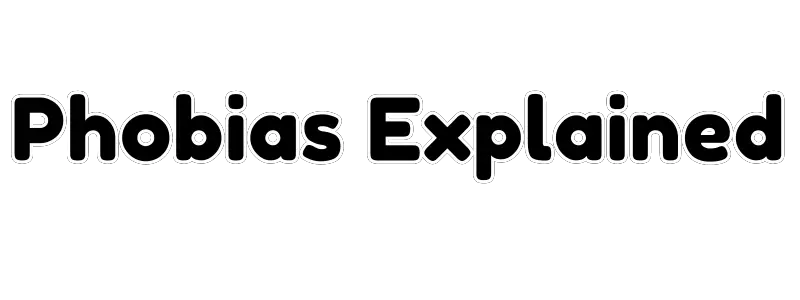Cracking the enigma of asthma phobia, this article delves into the gripping fear of an impending asthma attack and its psychological implications.

What Is the Fear of Asthma Phobia?
You've felt the tightness in your chest, the quickened heartbeat, the gasping for breath. Yet, have you ever stopped to consider whether this physical discomfort could be fueling a psychological fear as well?
This is the crux of asthma phobia – an intense, often irrational fear of having an asthma attack.
It's a nuanced condition that straddles the line between physical ailment and mental health issue, making it a fascinating subject to explore.
So, as we embark on this journey, you might ask yourself: how much do I really know about asthma phobia?
Key Takeaways
- Asthma phobia is an intense fear of having an asthma attack, often rooted in personal trauma or learned fear.
- Common triggers of asthma phobia include past traumatic events, misinformation about asthma, and media portrayal.
- Asthma phobia can have both physical and psychological symptoms, and it can significantly impact everyday life and overall well-being.
- Cognitive-behavioral therapy (CBT) is the main approach for managing asthma phobia, along with relaxation techniques and gradual exposure to fears in a safe environment. Medication may also be used alongside therapy.
Understanding Asthma Phobia

To truly grasp the concept of asthma phobia, it's crucial to first understand what it entails and how it impacts those suffering from it. Asthma phobia, or the irrational fear of having an asthma attack, can have its roots in personal trauma or learned fear. You might've experienced a severe asthma attack in your past, or perhaps you've witnessed someone else's struggle, instilling a deep-seated fear.
Analyzing asthma phobia's origin, it often stems from a sense of loss of control during an asthma attack, leading to extreme anxiety even at the thought of experiencing another episode. This fear, although perhaps initially grounded in a real event, can become disproportionate to the actual likelihood of having an attack, creating a cycle of fear and anxiety.
Now, let's look at some phobia prevalence statistics. It's estimated that up to 13% of the population may suffer from a form of specific phobia, and while the percentage for asthma phobia isn't distinctly specified, it's part of the broader category of health-related phobias. As such, it's safe to assume that a significant number of individuals, particularly among those diagnosed with asthma, grapple with this fear.
It's important to remember that anyone suffering from asthma phobia isn't alone, and the fear isn't irrational to them. It's a real and terrifying prospect. Understanding the nature and extent of asthma phobia is the first step towards addressing it, and with professional guidance and support, it's entirely possible to manage and overcome this fear.
Common Triggers of Asthma Phobia

Navigating the labyrinth of asthma phobia, it's vital to identify common triggers that could ignite this crippling fear within you. Phobia Origin Studies indicate a variety of triggers, and understanding these can help you manage your fear more effectively.
Firstly, a past traumatic event related to asthma can serve as a significant trigger. If you've experienced or witnessed a severe asthma attack, it could instill a deep-seated fear in you. This fear mightn't always be rational, but it's real and can lead to the development of asthma phobia.
Secondly, misinformation and lack of understanding about asthma can also trigger phobia. If you're unclear about the condition, its causes, treatments, and prevention, the unknown can become terrifying. It's always better to equip yourself with accurate knowledge to prevent such fear.
Thirdly, the media's portrayal of asthma can contribute to the fear. Dramatized presentations of asthma attacks can create a distorted view of the condition, inciting unnecessary fear. This fear can evolve into asthma phobia, particularly if you're already prone to anxiety.
Finally, the Asthma Phobia Prevalence is significantly higher in people with a family history of asthma or anxiety disorders. The genetic predisposition can act as a trigger, intensifying the fear of asthma.
Recognizing these triggers is the first step towards managing your asthma phobia. It's important for you to understand that asthma is a manageable condition. With proper knowledge, medication, and lifestyle changes, you can lead a normal, healthy life. Remember, fear might be a powerful emotion, but it doesn't have to control you.
Recognizing Symptoms of Asthma Phobia

Having recognized the triggers, it's equally crucial for you to understand the symptoms of asthma phobia, as this can further help in managing this fear effectively. The symptoms may vary from individual to individual, but there are common signs that you can look out for.
It's important to note that just like any other phobia, the symptoms of asthma phobia can be both physical and psychological. Physical symptoms can include sweating, rapid heart rate, trembling, shortness of breath, or even mimicking asthma symptoms without any physical trigger. Psychological symptoms, on the other hand, can include an overwhelming sense of fear or anxiety, a feeling of impending doom, or obsessive thoughts about asthma attacks.
Phobia diagnosis isn't always an easy task, especially when the fear is related to a real health issue like asthma. However, recognizing these symptoms can aid in the diagnosis process. If these symptoms persist and interfere with your daily life, it's a strong indication that you may have asthma phobia.
Phobia prevention is equally vital in managing asthma phobia. Understanding the symptoms can help in early detection and subsequently, effective prevention strategies. These can include cognitive behavioral therapy, exposure therapy, or even relaxation techniques which can help you manage your fear and anxiety.
Psychological Impact of Asthma Phobia

Living with asthma phobia can cast a long shadow over your mental health, profoundly affecting everyday life and overall well-being. This fear, often stemming from a traumatic event or experience related to asthma, known as the 'Phobia Origin,' can disrupt your peace of mind and create an aura of constant worry. The fear of an impending asthma attack, even in the absence of any immediate triggers, can lead to a heightened state of anxiety. You may find yourself overly cautious, limiting activities you once enjoyed, or isolating yourself to avoid potential triggers.
The 'Phobia Impact' of asthma phobia extends beyond the immediate fear of an asthma attack. It can seep into your social interactions, professional life, and personal development. This continuous stress can drain your mental resources, causing fatigue, lack of focus, and even depression. You may also develop unhealthy coping mechanisms, such as alcohol or substance use, to numb the anxiety.
However, understanding the psychological impact of asthma phobia is the first step towards managing it. By acknowledging the influence this fear has on your life, you can begin to address it in healthy ways. Seeking help from mental health professionals or support groups can provide you with effective coping strategies. Remember, you're not alone in this fight.
With the right tools and support, you can reclaim your life from the clutches of asthma phobia. Embrace the courage within you and take the first step towards a future free from the fear of asthma.
Differentiating Asthma Phobia From General Anxiety

It's crucial to distinguish between your fear of asthma and general anxiety, as the therapeutic strategies for each can greatly vary. Understanding the key differences within the anxiety disorders differentiation and phobia classification can be instrumental in helping you navigate your fears more effectively.
Asthma phobia, at its core, is a specific fear related to the possibility of experiencing an asthma attack. You may find yourself constantly anxious about potential triggers, overly concerned about ensuring you always have access to your inhaler or other treatments, or even obsessing over the very thought of an attack. This fear is specific, connected directly to asthma and its potential implications on your health.
General anxiety, on the other hand, is characterized by a pervasive, non-specific worry. You may feel anxious about a wide range of situations or issues, not solely related to your health or the possibility of an asthma attack. This anxiety is typically persistent, excessive, and often not tied to any one specific fear or concern.
Remember, everyone experiences anxiety differently. It's possible to experience both general anxiety and asthma phobia simultaneously, or to have one but not the other. It's also important to note that anxiety can exacerbate asthma symptoms, making it even more critical to address this issue with your healthcare provider.
Understanding these differences is key in addressing your fears. Once you've identified whether you're dealing with a specific phobia or general anxiety, you can then seek out appropriate treatment strategies. Don't hesitate to reach out to a mental health professional for guidance and support as you navigate through this journey.
Treatment Approaches for Asthma Phobia

Navigating through the intricacies of asthma phobia, you'll find a range of treatment approaches designed to address and alleviate your specific fears.
The two main pillars of tackling this issue are phobia management and therapeutic interventions.
Phobia management primarily involves cognitive-behavioral therapy (CBT). CBT helps you understand and change thought patterns that lead to fear and anxiety. It's about altering your perspective towards asthma and its triggers, and learning to manage fear rather than letting it control you. For instance, you'll practice relaxation techniques and face your asthma-related fears gradually in a safe and controlled environment.
On the other hand, therapeutic interventions may include exposure therapy, which involves gradual and repeated exposure to the source of your fear. This may start from imagining the situation that causes anxiety, and progress to actually facing it. The goal is to reduce fear response over time.
Another therapeutic intervention is medication. Certain antidepressants, anti-anxiety drugs, or beta-blockers may be used to help control the physical symptoms of asthma phobia. However, medication is typically used in conjunction with other therapies, not as a standalone treatment.
It's also important to have a supportive network around you. Friends, family, or asthma support groups can provide comfort, advice, and a platform to share experiences.
Coping Strategies and Self-Help Tips

Embracing a variety of coping strategies and self-help tips, you can take a proactive role in managing your asthma phobia, enhancing the efficacy of professional treatment approaches. It's about harnessing your emotional resilience, acknowledging your fears, and taking steps to mitigate them.
Firstly, relaxation techniques are a valuable tool in your arsenal. These methods can help you maintain calmness, reduce the frequency of panic attacks, and gain control over your physical responses. Deep breathing exercises, progressive muscle relaxation, and guided imagery can help lower your anxiety levels, providing a calming effect. When you feel an anxiety attack looming, these techniques can be your first line of defense.
Emotional resilience, meanwhile, is about developing a robust mental framework that allows you to effectively handle stress and anxiety. It's about fostering a positive mindset, understanding that fear is a part of life, but it's also manageable. Regular exercise, maintaining a healthy diet, getting enough sleep, and engaging in activities you enjoy are integral to building emotional resilience.
Remember, it's okay to seek help. Reach out to support groups or trusted individuals who can provide emotional support and practical advice. It's not a sign of weakness, but rather a step towards empowerment.
Lastly, equip yourself with knowledge. Understanding asthma and its triggers can help demystify the condition, reducing fear associated with the unknown. Stay updated about the latest research and treatment options, which can give you a sense of control over your phobia.
These strategies, combined with professional treatment, can help you manage your fear of asthma, enabling you to lead a more fulfilling and less anxious life.
Conclusion
In understanding asthma phobia, it's crucial to recognize your triggers and symptoms. This fear can have a significant psychological impact, but remember, it's not just general anxiety.
Various treatments can help manage this phobia, and self-help strategies also play a key role. Remember, it's not about eliminating fear entirely, but about learning to cope effectively.
You're not alone in this journey, and with the right tools, you can navigate your asthma phobia with confidence and resilience.



Sign up